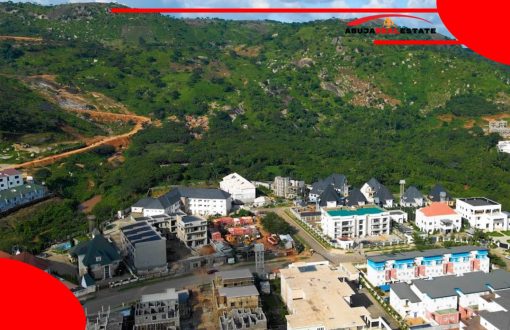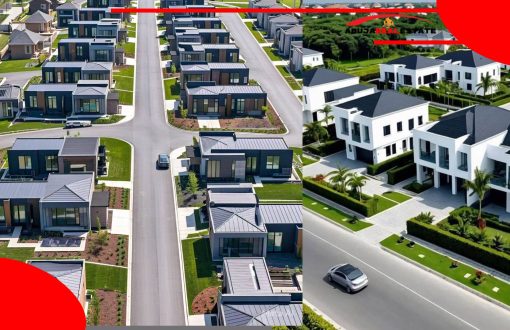Why Real Estate Developers Are Not Selling Sauka Land in Abuja

Sauka, a developing suburb in Abuja, has increasingly gained the interest of real estate enthusiasts, land buyers, and property investors. Its proximity to the Nnamdi Azikiwe International Airport, the city center, and developing infrastructural projects make it appear to be a prime investment hotspot. Yet, a burning question continues to circulate among clients and prospects alike: “Why are real estate developers not selling land in Sauka?”
Having received this question multiple times from clients, I felt compelled to provide a comprehensive, research-informed explanation. This article unpacks the various factors, from legal to strategic, affecting land sales in Sauka, Abuja.
Government Reserved Land and Strategic Urban Planning
One of the most significant reasons real estate developers are not actively selling land in Sauka is that Sauka is largely government-reserved land. The Federal Capital Territory Administration (FCTA) and other planning agencies in Abuja have earmarked specific zones for critical national projects and infrastructure. Sauka, due to its strategic location near major transport arteries and security installations, falls under this category.
Being government-reserved means the land is often not readily available for private sale or development. It may be designated for future projects such as security bases, government housing schemes, road expansion, or airport-related infrastructure. Developers, therefore, are wary of making claims or investments in areas where land ownership could be revoked or challenged.
Risk of Legal Disputes and Encroachment
In Abuja, and particularly in areas like Sauka, the issue of land ownership and documentation is delicate. The lands may have existing traditional claims, compensation issues, or ambiguous title documentation. Any real estate company that proceeds to sell land without clear legal backing risks litigation, land revocation, or reputational damage.
As a result, most reputable developers choose to avoid areas with unresolved land titles. Selling land in Sauka without proper allocation or ministerial approval may amount to land grabbing, which is a criminal offense under FCTA guidelines. Developers prefer to wait until the area is fully regularized and gazetted for private development.
Urban Masterplan Restrictions
Abuja operates under a strict urban masterplan, and every district, including Sauka, falls under a zoning regulation. These zoning laws dictate what kind of structures can be developed—residential, commercial, mixed-use, green belt, or government-only land.
Currently, Sauka is largely marked as a non-commercial zone, with much of its land intended for public use or federal development. Developers are bound by these masterplans and cannot begin massive commercial sales without first securing proper zoning clearances. This planning policy aims to prevent unregulated growth and protect the capital’s architectural integrity.
Infrastructure Deficits and Development Timing
Although Sauka boasts a strategic location, much of its infrastructure is still under development. The area lacks consistent road networks, water access, sewage systems, and power distribution in many of its interior parts. For developers, selling land in an area without proper amenities is not only impractical but also poses a risk to brand reputation.
Read Also: Best Airport Pickup Service in Abuja | Price and How to Book
Real estate developers tend to wait for the government to provide enabling infrastructure or for private-public partnership opportunities before launching property sales. Until such foundational amenities are in place, launching residential estates or commercial projects is considered premature.
Government Acquisition History and Policy Uncertainty
Another critical factor is the history of government land acquisition in and around Sauka. In several instances across the FCT, lands that were once thought to be free were later reclaimed by the government for public development. Sauka has a high-risk factor in this regard because of its proximity to key government zones.
Additionally, policy instability in Abuja land matters—such as abrupt changes in land use or revocation policies—creates an uncertain environment. Developers are cautious because investing in such a volatile location can lead to huge financial losses if policies shift unexpectedly.
Ethical Considerations and Developer Responsibility
Credible developers have a professional and ethical obligation to protect the interests of their clients. Selling land in a place like Sauka, without full transparency or documentation, would amount to misleading buyers. Many developers choose to delay entry into Sauka until all administrative, legal, and infrastructural aspects are sorted out.
Real estate development isn’t just about selling land; it’s about offering long-term value. Reputable firms understand that premature entry into questionable zones can damage investor trust and brand credibility.
Market Alternatives and Investment Redirection
As a result of the limitations in Sauka, many developers redirect their efforts to alternative zones in Abuja, such as Lugbe, Kuje, Gwarinpa Extension, or Idu. These areas offer:
- Easier land acquisition processes
- Masterplan-aligned zoning
- Better infrastructure readiness
- Lower risk of government reclamation
Investors are often advised to consider such areas where title documentation and return on investment are more assured.
Client Advisory and Long-Term Vision
In my experience as a real estate consultant, many clients are drawn to Sauka due to hearsay and its strategic location. However, it’s essential to base real estate decisions on verified facts and long-term vision, not just location hype.
Clients need to understand that developers avoiding Sauka isn’t necessarily a sign of neglect—it is a sign of responsibility and foresight. Waiting until Sauka is officially opened for private development ensures that buyers won’t lose their investment due to policy reversals or legal disputes.
Conclusion
The question, “Why are real estate developers not selling land in Sauka?” can be answered with one word: caution. While Sauka is undeniably attractive due to its strategic location, it remains a high-risk zone for now due to its government reservation status, uncertain title documentation, zoning restrictions, and infrastructure limitations.
Real estate development is not just about acquiring land—it’s about building trust, complying with urban policies, and ensuring long-term value for clients. Until Sauka’s land issues are resolved and gazetted for private ownership, ethical and visionary developers will continue to tread carefully.


